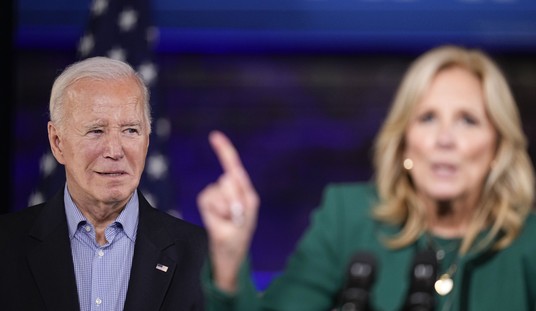The sound of cognitive dissonance can make an awful racket. Consider the review by Alan Brinkley of some new books about the Tea Party movement that appeared in the Sunday Book Review of the New York Times. One of the books, A Tea Party Manifesto, is co-authored by Dick Armey, former Republican majority leader and an important force in the Tea Party movement. The other books, Inside Tea Party America and The Whites Of Their Eyes: The Tea Party’s Revolution and the Battle Over American History, are by a New York Times reporter and a staff writer at The New Yorker, respectively.
Mr. Armey’s book is just what its title suggests: a manifesto (a manifesto, n.b., not the manifesto. It’s a distinction I’ll come back to). The books by the scribes for the Times and The New Yorker appear to be more like anthropological field reports of a certain vintage: intrepid investigator goes to live among a savage tribe and reports back to the civilized world on its beliefs and ways. Alan Brinkley represents the self-described civilized world for which the latter two books were written. He is ideally suited for the task. Trying to describe the Tea Party, he says at the beginning of his review, makes one feel like the blind man endeavoring to describe an elephant. “The movement, like the elephant, exists. But no one, not even the Tea Partiers themselves, can seem to get hands around the whole of it.”
As I remember it, the story about the elephant involved several blind men. According to one version of the story, there were six. Naturally, the one who felt only the trunk concluded that the elephant was a different sort of creature from the one who felt only the ear or the tail or the tusk. Mr. Brinkley’s reduction of the 6 (or, in some versions of the story, 3) blind men to 1 is significant. In the original, the story of the blind men and the elephant is meant to illustrate the limited and irremediably perspectival nature of human insight: each of the blind men reported something accurate but also incomplete. Mr. Brinkley’s redaction tells a different story. No longer do we have a subtle tale about the limitations of human cognition. Rather, we have a story about the utter failure, the overwhelming, of understanding. When it comes to the Tea Party, says Mr. Brinkley, “no one . . . can seem to get hands around the whole of it.” But the gravamen of the original story was that each of the blind men was quite right about a part of the elephant even if the whole escaped him.
Hence the significance of the indefinite article in “A Tea Party Manifesto.” Civilized chaps like Mr. Brinkley, to say nothing of participant observers of the movement from organs like The New York Times or The New Yorker, are predisposed to regard the Tea Party as an exotic beast, minatory, perhaps, but essentially unified. They are surprised when they discover that the movement is as diverse and multifaceted as the different communities in which it has spontaneously arisen. Hence the terrible scramble to “explain” — really, it is an effort to explain away — the Tea Party. Mr. Brinkley acknowledges that the Tea Party— or, as he likes to put it, “the Tea Party uprising” — “is the most visible and energized political phenomenon of the last year.” Nice of him to notice! About time, since even Jimmy Carter, even Russ Feingold, are claiming filiations with the movement they either ignored or disparaged a month ago.
Mr. Brinkley seems to think that it is news that the Tea Party is almost as skeptical about the Republican establishment as it is about the Democratic majority. How does he spell “Christine O’Donnell”? The whole point of the Tea Party is to question the establishment, be it Democrat or Republican. The Tea Party is not “anti-incumbent,” as is often said: rather, it is anti-business-as-usual, i.e., it is anti-spend-now-and-tax-later. It is anti-pork, anti-favors-for-services rendered.
More fundamentally, it is against the culture of dependency that 60-plus years of welfare-state rule has inculcated. It is against the explosion of government regulation and the intrusion of bureaucratic busybodies into the interstices of everyday life. Why should Washington tell you what sort of light bulbs you can buy, how much salt you can eat? The Tea Party, as different in Massachusetts from what it is in (say) Arizona, is unified in its opposition to increased government spending and (its inevitable consequence) higher taxes. The Tea Party has a healthy appreciation of the link between money and freedom, money and independence. Every dollar the government deprives an individual of is so much freedom that government has expropriated. And what are Tea Partiers for? Mr. Brinkley is unabashedly contemptuous when he lists “lower taxes, less government, more freedom.” Indistinguishable, he says, from what the Republican establishment says it wants. If only. In fact, “lower taxes, less government, more freedom” is a program overlooked almost as much by Republicans as by Democrats. What it presupposes is a recovery of that spirit of independence that Hayek, and before him Tocqueville, warned was always vulnerable in a democracy. A government that is big enough to do everything for you, Gerald Ford observed, is also big enough to take everything away.
There is a curious air of anachronism about Mr. Brinkley’s review. He’s writing about Whigs when Republicans are poised to take over. There is some laughable Democratic boilerplate in his review — the contention, for example, put forward in parenthesis, that the horrendous deficits we face “were mostly created by Reagan and Bush tax cuts.” (In fact, those tax cuts, especially the Reagan tax cuts, were the catalyst for the biggest explosion of wealth-creation in the history of the world. Datum: the stock market in 1982 was 700. By 2007, 25 years later, it had hit 14,000).
But the really jarring element about Mr. Brinkley’s report is its arrogant psychologizing, which is another thing that underscores its de-haut-en-bas smarminess: “We should not,” he writes, “be surprised that so many Americans are angry. Almost four decades of growing inequality have left most of them [them?] no better off than they were in 1970, and many worse off.” Hence, you see, the natives are restless. Mr. Brinkley and the two amateur anthropologists he reviews are eager to explain that anger, to encompass and defuse it. They’re angry — why? Because of Obama’s socialist takeover of health care? Because of his incontinent spending that will be a burden for generations? Because of Obama’s “world tyrants tour,” in which he jetted around the world to cry “mea culpa, mea maxima culpa” about the supposed sins of the United States? About the prospect of crippling rises in tax rates? About the pseudo-environmentalist attack on business and productivity? Because of the perversion of the Constitution and the freedom it guaranteed?
No, no, none of that. People are angry, according to Mr. Brinkley and his civilized authorities, because they realize that “the recklessness and greed of much of the financial world — the principal causes of the crisis — have done far more damage than taxes or the deficit.”
Do you believe that? Or do you sense in that non sequitur — marked by the leap between widespread “anger” and that supposed “recklessness and greed” — a sweaty desperation? These oh-so-civilized observers may think they’re measuring an elephant, to continue Mr. Brinkley’s image. In fact, they’re dimly glimpsing a 1000-pound gorilla. He’s angry, alright, and he won’t be mollified by invocations of greedy Wall Street bankers or the like. It wasn’t supposed to be like this: people like Mr. Brinkley were the ones who were supposed to be giving the explanations, not receiving them. But a lot has changed over the last year. For this, as one blogger pointed out, we have President Obama to thank. His policies, not “recklessness and greed,” are the cause of the anger. I suspect the president is just about to get a truck load of “hope and change.” The delivery he ordered, however, has been derailed. A replacement shipment of a notably different character is on its way.









Join the conversation as a VIP Member